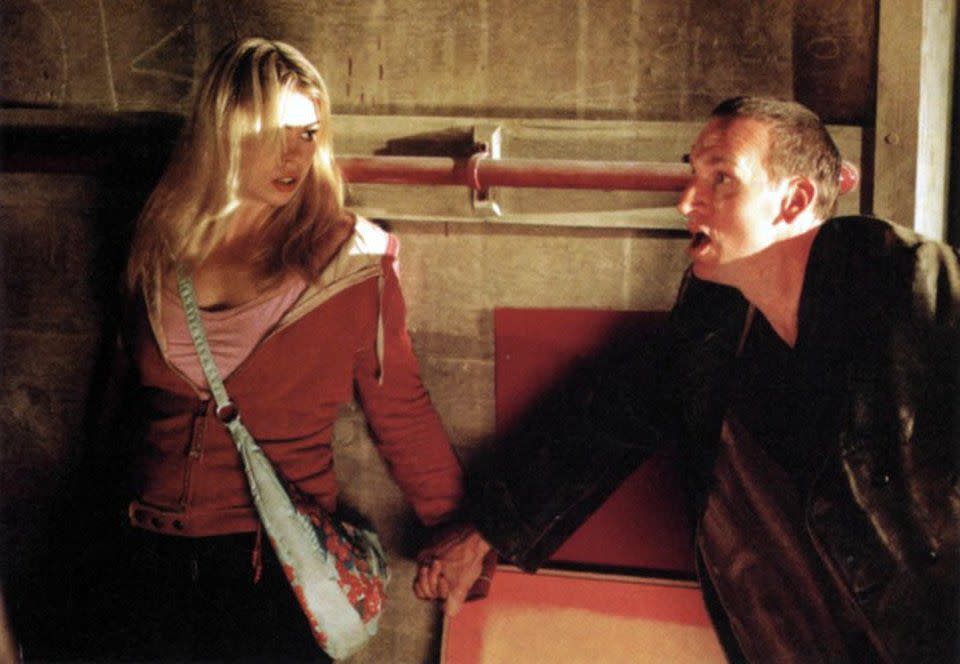How's Doctor Who *actually* doing so far, ratings-wise?

Jodie Whittaker's debut as everyone's favourite Time Lord last month in Doctor Who proved to be a huge hit with old and new audiences alike.
Her opening salvo in the long-running BBC sci-fi show even beat-off successors such as Peter Capaldi and Matt Smith and, unsurprisingly, drew in a much bigger female audience.
Over the episodes since, viewers have been returning in their millions each week to watch and praise Whittaker and her TARDIS team of Bradley Walsh, Mandip Gill and Tosin Cole whilst they travelled to an alien planet, met Rosa Parks and encountered some nasty spiders in the UK.

But some quarters – and, indeed, some media outlets – have been sniping, claiming that Doctor Who is haemorrhaging fans in the millions.
Recently, tabloids (who couldn't possibly have any kind of agenda) have said Doctor Who is "exterminating" fans due to the show's "PC plots".
Now, we won't address the five or six people on Twitter who don't like their favourite science-fiction show changing the gender of the lead character and addressing racism and colonialism right now (they obviously have their own issues to deal with) but let's have a look at those "plunging" viewing figures.
Series 11 Viewing Figures

Now, it is a fact to say that series 11 has seen a drop.
Jodie's debut, "The Woman Who Fell To Earth", attracted a consolidated total of 10.53 million on television (achieving a total of 10.95m if you include laptops, smartphones, etc...).
As a side-note, in an era of otherwise diminishing viewing figures, it turned out to be the biggest launch ever.
However, come ep five, the catchily-titled "The Tsuranga Conundrum", we find there's now 7.76m watching on television (consolidated). As you can see, this means that just under 3 million viewers have stopped keeping up to date with the adventures of the Gallifreyan (for the moment, at least).
But let's give this some context.

A very similar thing – if not exactly the same – happened with Christopher Eccleston's Ninth Doctor in 2005: he kicked off with 10.91 million but saw viewership drop by 4 million during his run with Billie Piper's Rose.
And it's the same story for Jodie's other predecessors: both Tennant's first and third series saw dips of around 3 million during their airings; over 3.5 million fell away for Matt Smith's 2010 episodes (his opening year in the TARDIS); and Peter Capaldi witnessed a 2.5 million drop in his freshman year.
As you can see, season dips are not new. In fact, they're overwhelmingly commonplace for Doctor Who and always expected. More like olds than news, amirite?
Now, let's compare the viewing figures from series to series.
The most successful season was in 2008 with the Tenth Doctor and Donna Noble, hitting an average of 8.05m, while the "worst" was Peter Capaldi's final run in 2017, with 5.45m.
Jodie Whittaker's Thirteenth Doctor has amassed a very impressive average of 8.55m so far (these figures come from the first half of series 11) – which means that this year is on target to be the biggest since Who's return in 2005.
Only a considerable drop in viewing figures for the rest of the run will change this. And, given that we've got a season finale to contend with, this doesn't seem too likely.
Chart Placings

Analysing these figures can be a little misleading (as viewing habits have changed greatly since 2005), so let's have a look at chart placings.
How does Doctor Who compare with other shows on telly on a weekly basis?
When Whittaker burst on to our screens last month, Doctor Who topped the TV Top 10, besting Strictly, Bake-Off, and much more besides. A huge feat.
Even more so given that Who has rarely hit the No.1 slot.
The last time it happened was in 2013, with the epic 50th anniversary special 'The Day of the Doctor', penned by former showrunner Steven Moffat, while David Tennant managed to be the most-watched on just three occasions during his tenure.

Jodie has continued to hover in the upper half, with the next three eps hitting number four (though two of the entries above are both Strictly) and the fifth dropping slightly to sixth place – resulting in the fact that Doctor Who has now remained in the weekly TV Top 10 for five weeks (with a six surely to be confirmed).
This is an even rarer feat.
Only series four, starring David Tennant and Catherine Tate, managed to get five eps in a row during the same series in the Top 10. Capaldi's era didn't trouble the top, for the most part, with his most recent series averaging outside the Top 20.
Matt Smith's first season had an average placement of 12 whilst Tennant's opening batch was 13 and Eccleston's averaged 17.
So, as you can see, Jodie is hitting highs rarely achieved by the show.
And finally...

Last night's episode, "Demons of the Punjab", did see another drop in the overnights, coming in at 5.8m – resulting in a drop-off of almost 2.5m since the series opener.
The story itself, though, was a hit with viewers.
But what we should bear in mind is the fact that the only programme on all television channels last night watched by more people that Doctor Who was the Strictly results show. Not even David Attenborough's new outing Dynasties or The X Factor could best Jodie Whittaker and her TARDIS gang.

So, is there need for concern from Whovians?
Ostensibly, no. Yes, there's been a drop but this is not a shock in any way; especially as the series 11 launch was so gargantuan. Doctor Who is in better shape with the regular TV audience than it has been in a great many years.
And, as demonstrated above, Chris Chibnall's first year as showrunner could turn out to be the biggest ever.
So, next time you see a tabloid slam your favourite show, there's probably a reason for it – and it won't be the facts.
Want up-to-the-minute entertainment news and features? Just hit 'Like' on our Digital Spy Facebook page and 'Follow' on our @digitalspy Instagram and Twitter account.
('You Might Also Like',)

 Yahoo News
Yahoo News 
